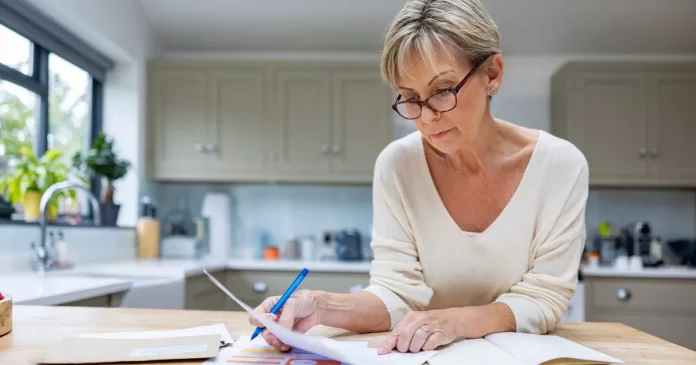The state pension will be rising from next year and Brits born in these years will be impacted. The state pension age – so the age where you can start claiming the Department for Work and Pensions (DWP) pension – is currently 66 years old for both men and women.
However, starting next year, it will start gradually increasing, rising to 67 years old from April next year. The transition process is then expected to be completed for everyone by March 2028. The planned change to the official age of retirement has been in legislation since 2014, with a further rise from 67 to 68, which is set to be implemented between 2044 and 2046.
The Pensions Act 2014 brought the planned increase forward by eight years, but also changed the way it would be implemented too. The legislation has brought in a gradual increase as opposed to bringing it in from one specific date. Under the current plans, people – born between March 6, 1961 and April 5, 1977, will claim their state pension once they reach 67 – so they will need to work one year longer than those born earlier.
It’s important to understand these changes, particularly if you are approaching the current state pension age and have retirement plans. The DWP will, however, contact all those affected by the rise over the coming months. The last increase to the state pension age was introduced in December 2018 when it started to rise from 65 to 66.
This was then completed by October 2020, and those affected by this change were women born on or after April 6, 1953 or a man born on or after December 6, 1953. The next rise to 68 would impact those born after April 1977. However, the plans may change.
Under the Pensions Act, a regular review is conducted of the state pension age once every five years. They often come back with recommendations that the government accepts, rejects, or comments on. The 2017 review suggested the rise to 68 should be in 2037-39.
While the 2022 review recommended a slower increase to 68, in 2041-43, and it mooted a possible rise to 69 in 2046-48. The suggestion from the 2017 review is that the rise to 68 should be brought forward to 2037-39, which would affect those born between April 6, 1970 and April 5, 1978. The former Tory government acknowledged the recommendations but delayed the decision, promising to hold another review within two years of the next parliament. The next review will be held under the Labour government.
You can check your state pension age using the online tool at GOV.UK, it is free to use, and all you need to do is enter your birthday. You can also use the tool to check:
State pension payments are set to rise again from April of this year and in the UK there are two different types of pensions – you can either get the old basic state pension or the new one. Men born on or after April 6, 1951, or women born on or after April 6, 1953, can claim the new state pension. Those born before these dates can claim an older basic state pension.
From next month, the basic state pension will increase from £169.50 to £176.45 per week, while the full new state pension will rise from £221.20 to £230.30 per week. This is a weekly uplift of £9.10, or £474.85, over the course of a year, going from £11,541.90 to £12,016.75.
Under the government’s Triple lock promise, the state pension is subject to an annual rise each year under the promise as it ensures that payments increase by either inflation (based on the previous September’s figure), wage growth (average increase between May and July), or 2.5% – whichever is the highest. This means it will continue to rise if the triple lock remains in place.
At Reach and across our entities we and our partners use information collected through cookies and other identifiers from your device to improve experience on our site, analyse how it is used and to show personalised advertising. You can opt out of the sale or sharing of your data, at any time clicking the “Do Not Sell or Share my Data” button at the bottom of the webpage. Please note that your preferences are browser specific. Use of our website and any of our services represents your acceptance of the use of cookies and consent to the practices described in our Privacy Notice and Cookie Notice.


